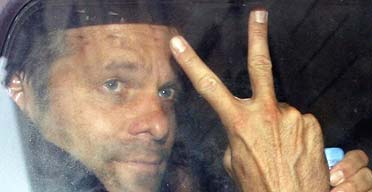 Bwin.party co-CEO Norbert Teufelberger has reportedly been detained by Belgian police whilst attending a conference in the country’s capital Brussels. Teufelberger was at the annual European Gaming and Betting Association (EGBA) Responsible Gambling Day when police arrived. He was permitted to complete a speech at the conference before being detained by Police to answer questions that reportedly relate to Bwin’s activities in the country.
Bwin.party co-CEO Norbert Teufelberger has reportedly been detained by Belgian police whilst attending a conference in the country’s capital Brussels. Teufelberger was at the annual European Gaming and Betting Association (EGBA) Responsible Gambling Day when police arrived. He was permitted to complete a speech at the conference before being detained by Police to answer questions that reportedly relate to Bwin’s activities in the country.
Peter Naessens, legal advisor to the BGC, is quoted by GamblingCompliance as stating: “Norbert Teufelberger has made comments in the press they continue to operate in Belgium, and so we consider him to be guilty of operating illegally on Belgian soil. Therefore the Belgian police took him into custody today to ask him further questions.”
The same site also reports that Bwin’s Belgian lawyer Jan Decorte accompanied him to the station. He will be expected to answer charges relating to the continued operation of two bwin sites, www.bwin.com and www2.bwin.com, that are on Belgian’s iGaming Blacklist.
The company confirmed Teufelberger was being detained, with the following statement released shortly after reports had first emerged:
In response to press reports this afternoon, the Group can confirm that Norbert Teufelberger, Co-CEO, was requested to attend an interview with the Belgium authorities. He complied voluntarily with this request and is co-operating fully with the authorities. We will issue further details in due course.
Belgium and bwin.party have been fighting a pitched battle ever since the country decided to regulate its market and blacklist certain firms. That move has reportedly been costing the firm €700k every month and Teufelberger has repeatedly admitted the firm will continue to take bets despite being on the list.
Those familiar with Norbert will know this is the second time the bwin.party co-CEO has spent time behind bars after being detained in France, along with Manfred Bodner, back in 2006. Even more worryingly for the company is the prospect of the US regulators finding out and deciding they don’t meet their stringent regulatory requirements. Oh, and there’s also the stock market dumbing down on them.
